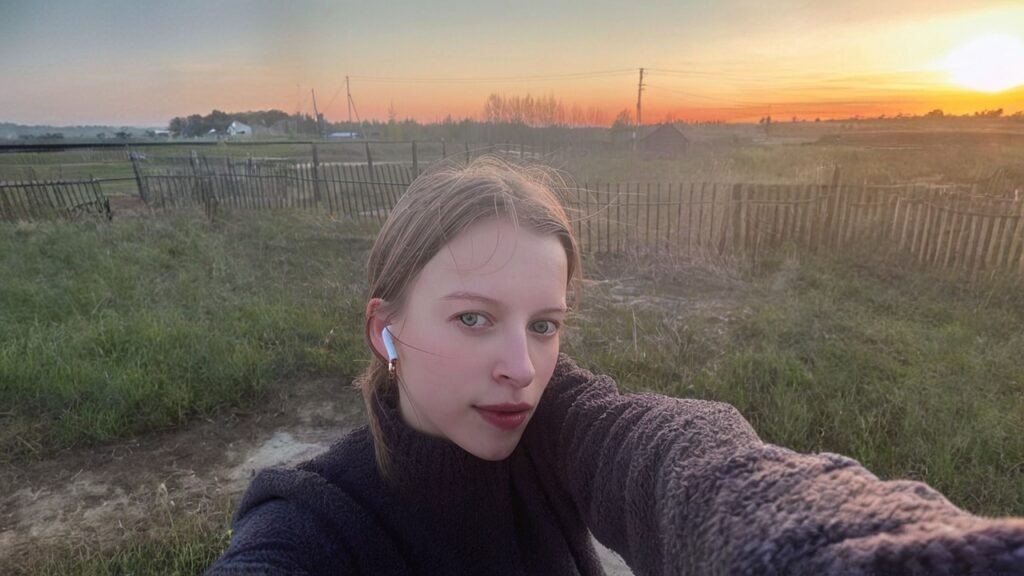I’m back in London! Two weeks in Russia — the first extended time home since this whole adventure began — and I feel like I’ve been traveling between not just countries, but entire versions of myself.
The flight from Sheremetyevo to Heathrow is only four hours, but it might as well span decades. Watching the English countryside appear below, all neat hedgerows and orderly fields, I realized I was carrying more than just souvenirs in my luggage. I was bringing back a renewed understanding of who I was before I became who I am now.
Home looked exactly as I remembered and completely different from how I felt. The same narrow streets where I learned to ride a bicycle, the same corner shop where I bought my first glossy magazine, the same park bench where I used to read Chekhov and dream about living in cities I’d only seen in films. But I walked through it all like a tourist in my own childhood, seeing familiar sights through eyes that had been trained by London galleries and Dubai skylines.
My mother’s kitchen remained the center of the domestic universe, filled with the eternal scent of dill and the soft percussion of her knife against the cutting board. She made my favorite soup every single day — as if two weeks weren’t nearly enough to make up for all the meals we’d missed sharing. “Ты похудела,” she declared within minutes of my arrival, immediately launching into the universal maternal campaign to restore me to her preferred version of healthy.
What struck me most was the temporal dissonance. In my hometown, everything seemed frozen in a gentle amber of routine and familiarity. The same neighbors tending the same gardens, the same shopkeepers behind the same counters, the same rhythm of daily life that had been humming along perfectly well without my participation.
But I had become a walking catalog of elsewhere: London’s sophisticated energy, Dubai’s impossible ambitions, the characters from my book who now felt more real than some of the people I’d grown up with. I found myself mentally translating conversations, not between languages but between worldviews — explaining nail art as high fashion, describing the MBA as practical rather than pretentious, justifying the choice to write stories instead of settling into predictable stability.
My father wanted to hear about the business aspects of writing, approaching my creative work with the same methodical curiosity he’d once applied to my math homework. My mother was more interested in whether I was eating properly and if London men were treating me with appropriate respect. Both conversations felt like negotiations between who they needed me to be and who I was becoming.
The most revealing moment came during a walk through the old neighborhood. My childhood friend Katya, now married with twin toddlers, listened politely as I described the luxury brand management courses, then said, “It sounds fascinating, but don’t you ever just want to come home and be normal?” The question wasn’t unkind, but it highlighted the growing distance between the life I’d left and the life I was building.
Instead of making me question my choices, those two weeks clarified them. There’s something powerful about returning to your origins when you’re no longer the same person who left. You can appreciate the stability and warmth of home while recognizing that you’ve outgrown the person who once fit seamlessly into that world.
My notebook is filled with observations about belonging and displacement, about the courage required to honor both where you come from and where you’re going. The women in my next collection will understand this tension — the pull between safety and growth, between maintaining connections and pursuing transformations that others might not understand.
I’m returning to my MBA coursework with fresh energy, seeing connections between brand authenticity and personal authenticity that I hadn’t noticed before. The modules on consumer psychology feel particularly relevant now — how do you maintain genuine relationships with people whose aspirations have diverged from yours? How do you honor your past without being limited by it?
The second book is taking shape around these themes of cultural navigation and identity evolution. Characters who straddle multiple worlds, who translate between different versions of themselves depending on their audience. The nail studio becomes a space where these translations happen daily, where people slip between the person they are at home and the person they’re becoming in the world.
My mother packed enough food to sustain me through the next month, along with seeds from her garden that I’ll probably kill through overattentive care. But the real gift was the reminder that growth doesn’t require rejection of your foundation — it requires understanding which parts of your past serve your future and which parts you can honor without carrying forward.
The plane lifted off from Russian soil carrying a passenger who felt more settled in her choices and more excited about the stories still waiting to be discovered.
Posted from London, where home is both a place you leave and a feeling you carry.
— Writer Julia Zolotova

